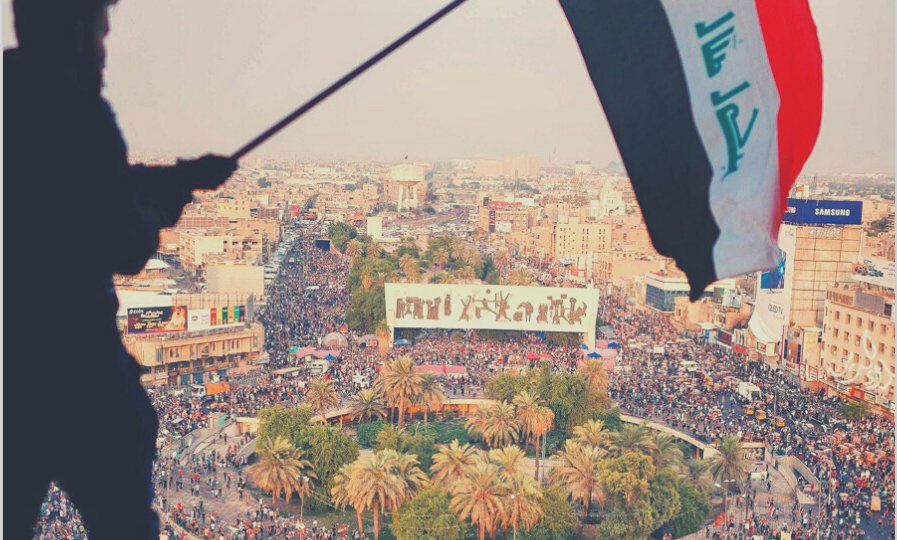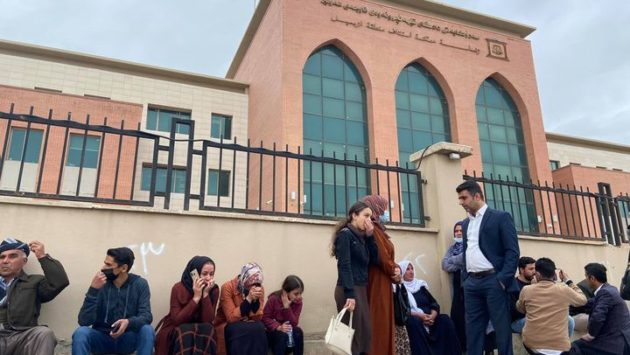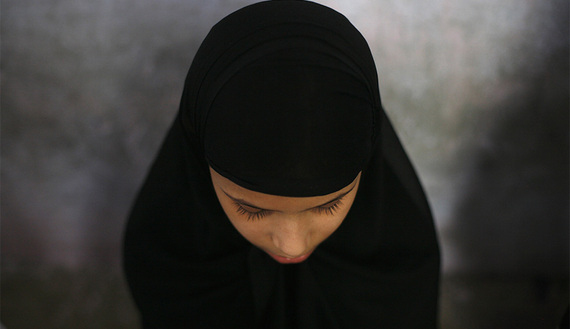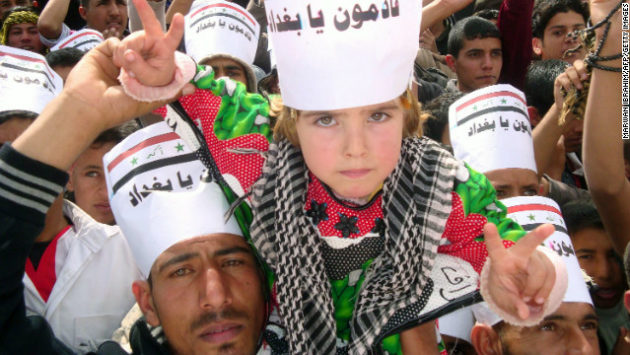October 10th Early Elections Perspectives From Iraqi Civil Society
Abstract
To understand the roots and dynamics of the early elections of 10th October 2021 in Iraq, it is necessary not only to understand the geopolitical and institutional aspects of the country but also to follow the evolution of Iraqi social movements, the reactions and the role of local civil society.
The Iraqi Civil Society Solidarity Initiative (ICSSI) has brought the findings obtained through a constant dialogue undertaken with their Iraqi partners, in order to disseminate their perspectives on the electoral system and the political situation in the country. The result of this effort is aimed at those who will be reporting the events linked to the elections in Iraq.
Early elections in Iraq were called in response to the protest movement’s request in October 2019, but the electoral process was driven by traditional institutional forces and characterized by the presence of the armed forces and continuous intimidation of activists and new forces of opposition. This situation has generated a reaction of mass boycott, which will leave its mark on the results of the elections, at the risk of benefiting the traditional forces themselves. In fact, large sections of the population are turning to protest abstention, driven by a profound distrust of the traditional institutional system. Some parties have instead chosen a strategy of political boycott, denouncing the inequities of the system, the violence and intimidation of which their candidates are victims.
At the same time, and in recognition of the value of guaranteeing transparency and fairness in democratic processes, hundreds of Iraqi civil society organizations have mobilized by setting up extensive election observation networks aimed, if not at preventing probable violations, at ensuring that they are detected and made public. Disadvantaged on the institutional level and neglected at the international one, these networks do constitute a resource for analyzing the progress of the elections in the complexity of the Iraqi context.
Some elements to understand the electoral complexity and Iraqi civil society perspectives:
- 2019 uprising and the demand for early elections
October 2019 marks the beginning of a series of events that will remain in the history of Iraq. The growing of a general discontent among the Iraqi population led to the first waves of demonstrations by young people. Later, they were joined by people of all ages and social backgrounds who took to the streets across the country demanding a change, particularly of a political nature. The reasons that led to the revolt concern a political system characterized by corruption, high unemployment, poverty, lack of security and public services, to which the protesters have opposed the demand for justice, equality, meritocracy, the end of sectarianism and the renewal of the political class.
It all started in Tahrir Square, in the middle of Baghdad, where the uprising became increasingly significant with the support of most Iraqis. The following year, a new wave of protesters took to the streets again, this time with better organization and coordination, asking for more specific demands: early elections, a new electoral law, the political system reform, economic reforms and the dissolution of the largest political factions and their militias, most of which supported by Iran. The government’s response was violent repression and the illegal use of force, killings, and kidnappings. After the first month of brutal violence and bloodshed, protesters called for the resignation of the Prime Minister, Adel Abdul Mahdi.
The political system imposed on Iraq by the alliance led by the US in 2003 is considered among the main causes of discontent, as it is deemed to be responsible to have fueled sectarian discourses and practices. By dividing the Iraqi population into three ethnic groups – Shiite, Sunnis and Kurds – the political system has contributed to isolate not only those Iraqi who have a unified vision of the country’s identity but also Christians, Yazidis, Mandaeans and other minorities to whom the political space is precluded. Instead, a sense of national unity emerged from the protests, and it has been translated into the demand for an independent Iraq. Indeed, protesters call for a government autonomous from foreign powers, namely from Iranian and US influence.
After the proposal of various names and a period of heated political debate, in which also the demonstrators had their say, Mustafa Al-Kadhimi was nominated Prime Minister. However, this government is considered transitional and has the goal of securing free and fair early democratic elections – as opposed to the previous elections in 2018, which were tainted by corruption and fraud. At the beginning scheduled for June 6th 2021, new elections have then been postponed to October 10th, in line with protesters’ demand to ensure more transparent and fair conditions.
Some Iraqi activists and protesters say a popular movement would create real opposition in the Iraqi parliament. The change would be influenced not only by the demonstrations but also by forming a movement without any religious, sectarian, or national distinction inside the Parliament.
It is in this context that various actors, which emerged from the protest, have turned into real parties, while others keep representing social currents that push for political changes. However, this is not easy due to the economic and military power of the conservative leaders who oppose changes, and to the intimidation and violence against activists.
- Persecution of activists, protesters, journalists, and candidates: the violence in the political system
The protests unleashed in October 2019 were arenas of political expression for many young people and activists of all kinds; unfortunately, they were also scenarios of horror, due to the harsh persecutions suffered by activists and demonstrators. Since January 2020, the Gulf Center for Human Rights (GCHR) has published 18 reports documenting the human rights situation in Iraq, focusing on human rights defenders, journalists and activists targeted, subject to intimidation and attacks to oppress their freedom of expression and protest. Security forces and militias affiliated with traditional parties are responsible for systematically using disproportionate force against them: since the beginning of the protests over 600 people have been killed including demonstrators, journalists, and activists, 20 thousand have been injured and others have disappeared. In addition, the threatening presence of militias, connected to the traditional parties of the Iraqi establishment, was denounced during the protests causing multiplied retaliation, violence, and repression.
In this scenario, new and independent candidates have been subjected to constant threats and retaliation to leave the electoral race, paving the way for traditional parties. Some of them have been forced to flee their cities and rework their political action, in a political climate in which the voices calling for national cohesion against patronage networks are systematically subjected to repression.
- New political forces: an opposition coalition
New political forces emerged in an autonomous and fragmented way. Yet it is noteworthy the new political project that aims to create an opposition coalition, made up of those political groups born after the Thawra Tishreen, the October revolution, and the Iraqi communist party. Among the protest groups and movements, Bayt al-Watani (National House), is the one who led the first phase of the coalition, with the first conference held in September 2021, where gathered all political groups of the opposition. They all support the political boycott of elections, hoping to manage to shed light on the shared request for accountability from the Iraqi government for the violations, to monitor the effectiveness of the rule of law, and to support pacific, non-violent protests.
- Boycotting elections
As the early parliamentary elections approach, the Iraqi political horizon is anything but clear. Many actors of the Iraqi socio-political scene are urging people to boycott the elections. The dynamics of electoral boycotting in Iraq is articulated in two different – even though interlinked – dimensions: popular boycott and political boycott. Popular boycott means refusing to vote and protest abstention, it is sustained by a vast segment of the Iraqi population, and it is also supported by some civil society organizations. Many of those who took to the streets in October 2019, asking, among the other things, for early elections, are the same who are now joining the popular boycott. They believe that the basic conditions necessary for holding free and fair elections are lacking. Indeed, they are discouraged by a political system that is known for being corrupted and affiliated with the armed groups plaguing the county, and that they hold responsible for the crisis Iraq is going through. The decision of many Iraqi citizens to not vote rests on the impunity for episodes of violence, threats, kidnappings and killings of leaders of newly born political movements and activists. For some boycotting is expressing their mistrust towards Iraqi institutions; for others is a way to demand justice for violation of human rights and for episodes violence perpetrated by armed groups all over the country, as well as to call the political system out for its silence about it. Also, by boycotting Iraqis are denouncing a lack of freedom of expression and of political participation.
On the other hand, there is the political boycott, hence the choice of some parties to not run for October elections, with the objective to delegitimize the whole electoral process. The first ones to decide not to participate in the elections have been the political groups and movements representing protesters’ interests, which emerged in the last two years. The killing of the activist Jawad al-Wazni in Karbala in July 2021 was determinant to pursue this political strategy. Alongside these parties, much more relevant actors, as the Communist party and the Sadrist movement, decided to join the boycott. However, in August 2021 Muqtada al-Sadr changed his mind announcing that his party would participate in the elections, going back on his previous statement.
For the new political forces the reasons for boycotting lie first of all in the need to denounce violations of their own freedom of opposition and expression, in a political system incapable of – if not unwilling to – tackling the violence of the militias which ravage the country. Other reasons are then the opposition to the new electoral law, as they fear it could favor the interests of those local parties tied to tribes and militias at the expense of non-sectarian candidates.
Through electoral boycott, they hoped to obtain the postponement of the elections as well as some of the demands deemed crucial for a democratic electoral process, as the dissolution of armed groups linked to traditional parties on the grounds of unconstitutionality.
- The new electoral law
Among the demands that have emerged from the streets, there is the need for a more representative electoral law. The overwhelming power of the larger parties effectively prevents independent candidates and new parties from entering parliament or from appearing on the political landscape of small or national parties.
The new electoral law replaces complex calculations with an absolute majority system (whoever gets the most votes wins); the vote is expressed for the individual candidates, while previously it was expressed by lists or parties. Even though the new procedures aim at hindering the dominance of the Iraqi establishment, by providing more exposure, candidates’ personal safety is at risk. This results in limitations to their freedom of expression.
Another substantial change in response to the protesters’ requests is the increase of the electoral districts, which went from 18 (total number of Iraqi governorates) to 83, equal to the number of seats occupied by women in the Iraqi parliament (about 25% of the 329 seats). However, the delimitation of the districts is very debatable: if the objective of the squares was to guarantee a direct representation of the electorate, in practice it implements gerrymandering and vote disenfranchisement mechanisms; a striking case is the one concerning the districts in the governorate of Al-Anbar, which include territories hundreds of km away from each other just to unite the members of a single clan. Finally, anti-fraud mechanisms such as biometric verification are currently of optional use, and each governorate manages electoral practices according to its own local system, making the process vulnerable to manipulations.
- The civil society actors in the electoral monitoring: a core role
Electoral monitoring is considered by the Iraqi civil society a key practice to guarantee free and fair elections. For months many organizations have been mobilizing their resources to build a heterogeneous front to detect and report inefficiencies and violations in the national electoral system.
The main actors are four large networks – SHAMS, Tammuz, Hamurabi, Ayen –that form a coalition and are supported by two civil society regional networks, the Arab Network for Democratic Elections (ANDE)and the Arab Region Monitoring Elections (EMAR). In addition to them, there are also single organizations, the Peace and Freedom Organization (PFO) and Tawasoul. Many of these organizations have been monitoring for some time the different steps of the electoral process: from the preliminary procedures to the electoral results and their certification. Indeed, by not focusing only on the election day they want to monitor and evaluate the whole electoral process. They produce data and sources of information about the new electoral law, the voting registration procedures, the technologies implemented, the financial transparency of the parties, the role and weaknesses of the Independent High Electoral Commission (IHEC), the procedures to select the political parties and the candidates, the elections campaigns, and the procedures of the Federal Court, appointed to certify the electoral results.
Nonetheless, the role of the Iraqi civil society in guaranteeing a transparent and democratic electoral process in the complex Iraqi political system was not acknowledged and supported enough, neither from national institutions nor from international ones, such as UNAMI.
Besides struggling to register as official monitoring and to obtain interviews with the Commission and information, they face the fact that the national and international funding to the Iraqi civil society for the elections was destined for the most part to public awareness initiatives, neglecting the monitoring work of civil society networks. On the other hand, the monitoring by international delegations enjoys greater consideration: even though its utility is acknowledged, it presents some substantial limits pointed out by the Iraqi civil society. In fact, it is characterized by the incapability to monitor marginalized areas, usually more subjected to manipulation and violence, by being focused only on the voting day and not on the preparation procedures; finally, by the absence of an effective connection with institutional and civil society networks. In this regard, the SHAMS network realized a report about international delegations, including a set of recommendations.
CONTACTS AND MORE INFORMATION
To get in touch with civil society activists and/or Iraqi monitoring networks, write to icssi.project@gmail.com




